Nick Mulvey (b.1984) is a singer-songwriter who draws from a refreshing and unexpected palette of global roots music, modernist classical and electronica. His second album, Wake Up Now, was released earlier this year, and showcases a man on a quest, an artist who regards music as a direct expression of spirit. Along its course, it contains some of 2017’s finest, most intriguing music.
Mulvey grew up in Cambridge, studied music in Cuba, and became part of pop-jazz experimental group Portico Quartet while studying ethnomusicology at London’s School of African and Oriental Studies. He played the band’s then-defining instrument, the hang, and was with them for six years and two albums, including the Mercury Music prize-nominated Knee-Deep in the North Sea. He left in 2011 to go solo and his 2014 debut, First Mind, was also a Mercury Music Prize contender.
theartsdesk caught up with Mulvey on his recent tour, just prior to an ecstatic gig at the De La Warr Pavilion in Bexhill-on-Sea. We chat in a classroom adjacent to the venue. Mulvey is dressed down in jeans, a casual leather-style jacket, and a 1994 Lillehammer Winter Olympics sweatshirt. He is dark-haired and bearded and has intense blue eyes. At the end of a tour, he seems tired but polite, keen to get the interview done so he can get on. He is worried about his voice, and sips at an infusion of sage that he hopes will help.
THOMAS H GREEN: The new album is a spiritual affair; growing up in Cambridge were you a religious boy?
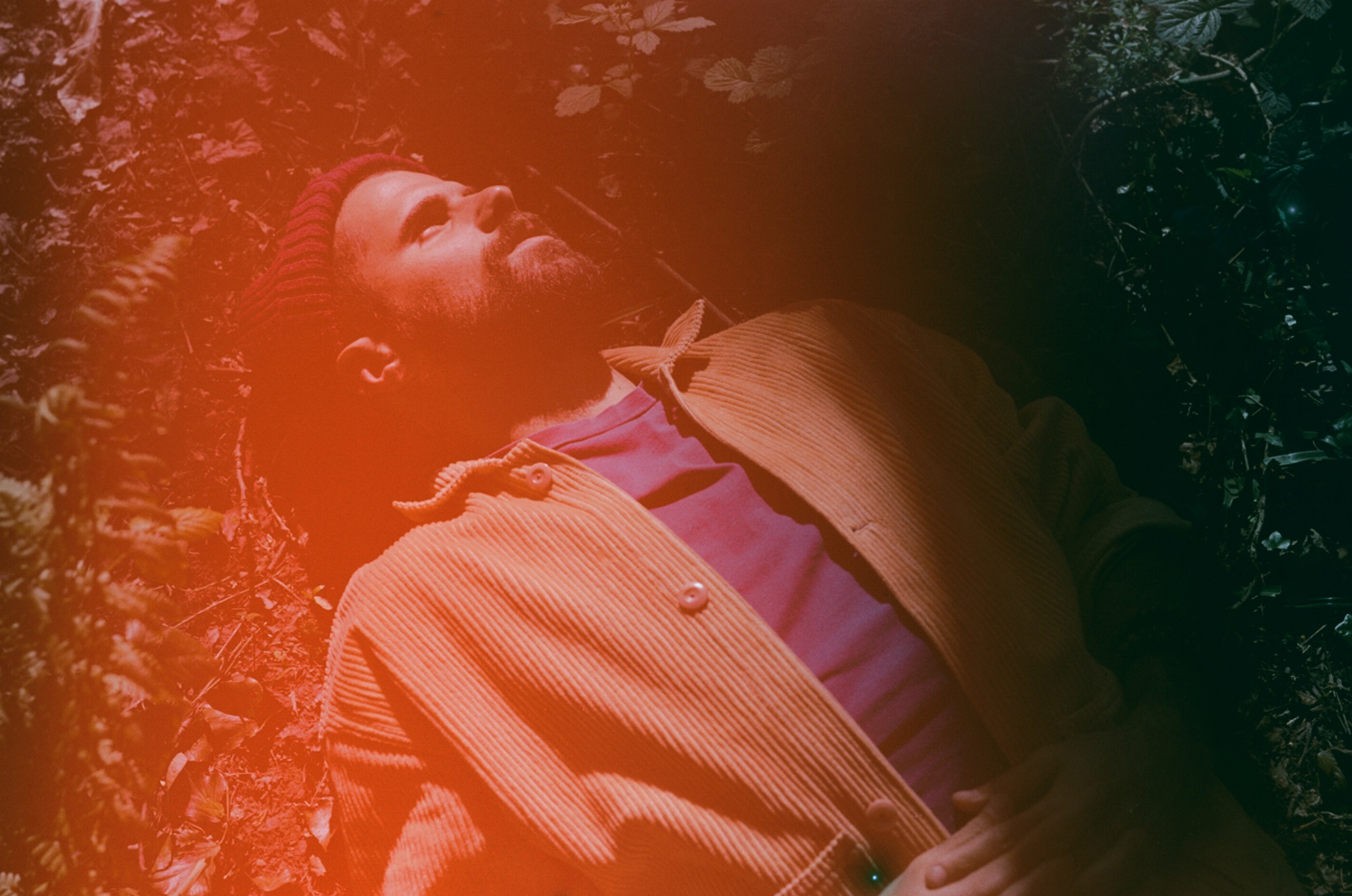 NICK MULVEY: No, both my parents were brought up as different types of Christian but then, along with many in the western 20th century, they didn’t find it meaning much to them so they never brought us up particularly religiously. I think culture and the arts had that place in our house. My Dad has always been interested in Buddhism and, indeed, he became a Buddhist so that was an environmental influence on me. Ideas of mindfulness and meditation.
NICK MULVEY: No, both my parents were brought up as different types of Christian but then, along with many in the western 20th century, they didn’t find it meaning much to them so they never brought us up particularly religiously. I think culture and the arts had that place in our house. My Dad has always been interested in Buddhism and, indeed, he became a Buddhist so that was an environmental influence on me. Ideas of mindfulness and meditation.
Did you rebel in your teenage years, reacting against your parents’ values?
I did for a minute. My dad was a yoga teacher and I just wanted to play football, but I didn’t rebel too much because they had zero interest in putting their thing on us. I think that had happened to them and they knew what an individual path it is. From about 15 years old I realised a lot of my heroes were singing, under the surface, about spiritual ideas.
Such as…
Bob Marley, Paul Simon, Nina Simone, John Lennon. That all happened in tandem with my own feelings. Walking down the street one time I remember having the sense that nothing is ever ordinary, ever, even ordinary things. Everything is alive.
When you phrase that, it makes me recall Dr Timothy Leary and Dr Richard Alpert and the culture that grew out of their and others’ experiments with psychedelic drugs, 50 years ago.
Ram Dass is massive influence on this album [Ram Dass is the name Alpert took in the late Sixties, going on to a lifetime of spiritual writing and teaching]. He’s top of the list of influences on this record. There weren’t necessarily key albums that changed my direction with this record but there were thinkers and teachers. I heard Ram Dass himself say that he is the bait and the Maharaj-ji [Dass’s original Indian guru] is the fisherman. I am the fish.
Dass is an old man now, living in Hawaii. What drew you to him?
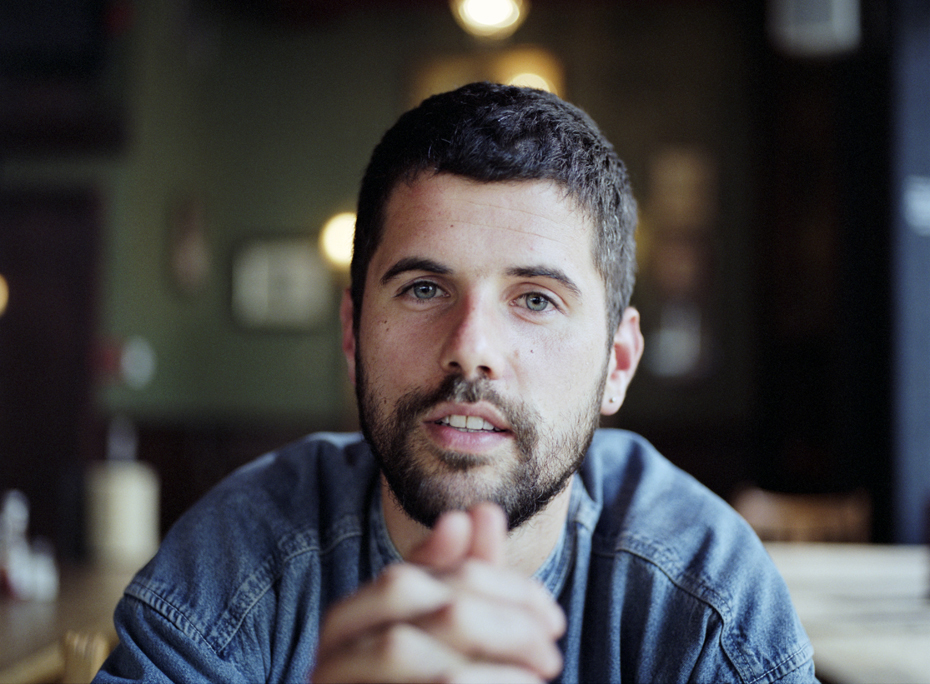 A mixture of things. A friend called Jamie Catto made a film with him called Walking Each Other Home, so Jamie was posting some stuff. I heard something and thought, “Wow, I really need to hear more of this.” I was totally seduced and hypnotised by his oratory skills. Some of those early Seventies talks, he’s just on fire, a stand-up comedian but also this intelligence. In this booming economic age of industry and material growth, he’s able to draw from so many different backgrounds, modalities and ideas.
A mixture of things. A friend called Jamie Catto made a film with him called Walking Each Other Home, so Jamie was posting some stuff. I heard something and thought, “Wow, I really need to hear more of this.” I was totally seduced and hypnotised by his oratory skills. Some of those early Seventies talks, he’s just on fire, a stand-up comedian but also this intelligence. In this booming economic age of industry and material growth, he’s able to draw from so many different backgrounds, modalities and ideas.
LSD played a big role in the start of his journey. When he was at Leary’s Millbrook House retreat in upstate New York in the mid-Sixties, he sat in the attic with a mayonnaise jar full of almost pure acid, attempting to pierce reality’s envelope. Where do you stand regarding such an entry point to world of spirituality?
It’s big for me, always been important. I’ve been very marked by experiences on psychedelics throughout my life, and I definitely buy into the idea that mushrooms and psychoactive plants have had a very foundational role in our development as a species. When you eat the mushrooms it rings true in this very profound way. I’ve heard various different schools of thought all agreeing on the idea that our self-affective conscious experience has a lot to do with our co-evolution with mushrooms. And then when I was 22 I came across [South American psychoactive potion] ayahuasca when I was in Brazil. I didn’t know about it, it was a chance meeting. It was a very profound experience, that kind of awareness.
And you pursued this further?
I met some people who were in London. I met a community who are, more or less, a global ayahuasca shamanic church called Santo Daime – it’s Portuguese for “saint give me” and is over one hundred years old. It’s a very typical story of modern Brazil, the indigenous practices crashing into the European-dominant Catholic Church, with a very strong African influence. It's syncretic but a very modern ritual which draws from the indigenous, the African and the European, like Brazilian music and football does. It then travelled throughout the 20th century to São Paolo and Rio and it’s gone totally global, switching people on in this age. I find it fascinating that this juice from the Amazon is doing what it’s doing. At the core of Wake Up Now is a Santo Daime church; myself, Frederico [Bruno], Dean Brodrick – we all have had ten years’ worth of worship and ceremony between us and we’re all friends who love playing music.
Are you worshipping a deity or is it more about humanist spirituality?
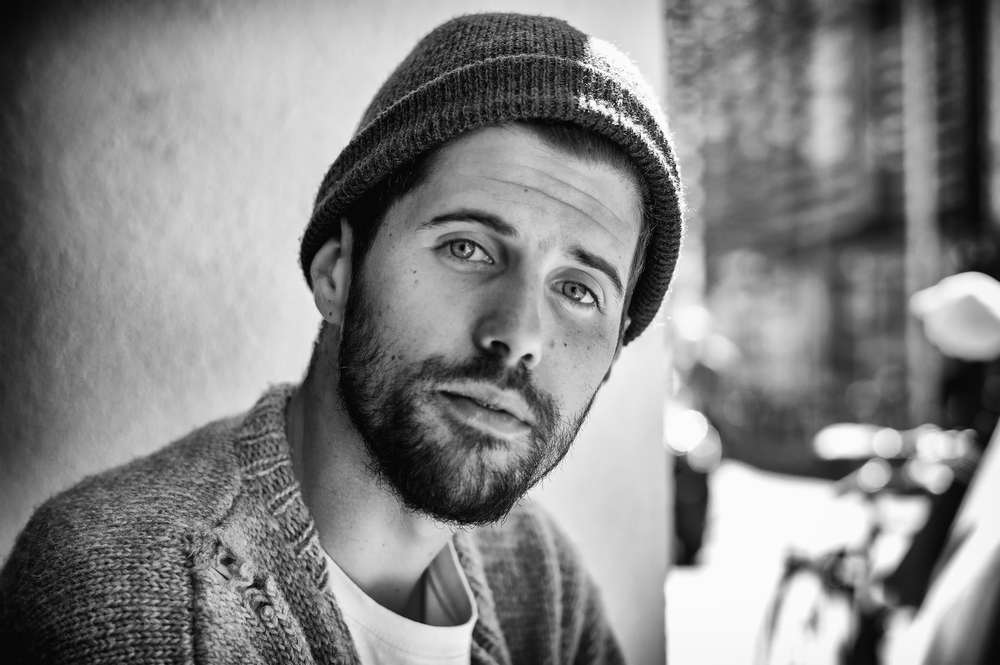 It’s a mixture of the lot. The whole point is that through the psychedelics, as you may know yourself, you have direct experience so it doesn’t matter what the name of the word is. The outward form of Santo Daime, on the surface level, it has lot of “Jesus Cristo” and “Ave Maria”, and initially I found that a little bit uncomfortable but eventually I could get my head around it as nice and symbolic. Over the years, I’ve met friends who practice Catholicism but are also alive and awake. I’ve seen through them how meaningful that can be. I’ve always had an open attitude towards world religions. I had an appetite for Sufism, for Buddhism, for Zen Buddhism – as much as I can get my hands on, actually.
It’s a mixture of the lot. The whole point is that through the psychedelics, as you may know yourself, you have direct experience so it doesn’t matter what the name of the word is. The outward form of Santo Daime, on the surface level, it has lot of “Jesus Cristo” and “Ave Maria”, and initially I found that a little bit uncomfortable but eventually I could get my head around it as nice and symbolic. Over the years, I’ve met friends who practice Catholicism but are also alive and awake. I’ve seen through them how meaningful that can be. I’ve always had an open attitude towards world religions. I had an appetite for Sufism, for Buddhism, for Zen Buddhism – as much as I can get my hands on, actually.
Well, music rises out of it on the new album. The song “When the Body Is Gone” is about death, about not fearing death.
There’s a Ram Dass lyric in that song. He’s talking about conversations he has with a disembodied spirit called Emmanuel and he’s very funny about it, very frank. He says, “What are you going to do? This is the deal, I am actually having this dialogue!” And Emmanuel tells him death is perfectly safe and it’ll be just like slipping off a tight shoe, which to me was astounding. I’d never heard anyone say that in my life, that death is perfectly safe and it really rang true with my sense of what’s going to happen at that moment, what it’s going to be like. What we see around us all the time is change and transformation, we never see finality. I can see that maybe death is the finality of my constructed egoic personal history, my future ambitions, my personhood – and that’s profound, I’m not being blasé about that – but also I can see there’s more than a finality. You’re walking through the forest and there’s mulch and soil and degrading trees and new life coming through…
So you are not scared by death, then?
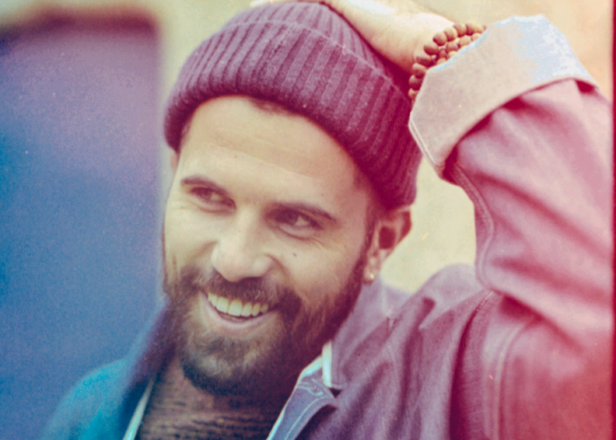 In 2015, towards the end of touring the first album I was in San Francisco. I’d just switched on to Ram Dass and had an immediate and unending thirst for all his YouTube talks. Then someone on the merch stand gave me this book, Ram Dass’s The Only Dance There Is. I was driving down to LA the next day and we’ve almost missed the flight, me and my wife in the car, bickering because we’re stressed. She turned really rashly across the oncoming traffic. Am I afraid of death? I screamed like a little boy. I was terrified. On that song, if I come across blasé, it's a mistake, it’s my own immaturity. At the airport I then met Krishna Das. He’s a Grammy-nominated spiritual Indian singer but he’s American. He’s Ram Dass’s good mate and had just come from his bedside in Maui. Together they were with Maharaj-ji, back in the day. So I ran into him having had this near death experience just minutes before.
In 2015, towards the end of touring the first album I was in San Francisco. I’d just switched on to Ram Dass and had an immediate and unending thirst for all his YouTube talks. Then someone on the merch stand gave me this book, Ram Dass’s The Only Dance There Is. I was driving down to LA the next day and we’ve almost missed the flight, me and my wife in the car, bickering because we’re stressed. She turned really rashly across the oncoming traffic. Am I afraid of death? I screamed like a little boy. I was terrified. On that song, if I come across blasé, it's a mistake, it’s my own immaturity. At the airport I then met Krishna Das. He’s a Grammy-nominated spiritual Indian singer but he’s American. He’s Ram Dass’s good mate and had just come from his bedside in Maui. Together they were with Maharaj-ji, back in the day. So I ran into him having had this near death experience just minutes before.
I find the thoughts contained in that song helpful, confronting existential terror. There’s not enough of that in popular music.
My mate’s mum died recently and his dad wrote me a lovely message about what it was like to hear that song. That’s my job done. I was happy to hear that. I really felt when I heard Ram Dass say, “Death is perfectly safe,” that it would be really useful to amplify that in my own spere of influence.
The song “Mountain to Move” has a great chorus, “Wake up now!” It seems like a much-needed clarion call for the world at the moment, in multiple ways?
That’s definitely part of it but there are more layers to it. It almost sounds like a command. When it came to slogans on the record, putting the tip on the spear where art interfaces with commerce, that line kept returning. Initially I was resistant, the slogan in three words sums up the theme of the record. I went with it [as the album’s title] but with hesitancy. I’m afraid of people interpreting it as a command. You can’t command an apple to ripen quicker, it’s totally happening of its own accord.
Watch Nick Mulvey perform "Mountain to Move" unplugged
So you’re in favour of evolution rather than revolution?
Yeah, in a way, but maybe we’re at that point in our evolution where it now requires our thrust.
You are on Fiction, a big major label, that had Snow Patrol some years ago. Has there been any pressure to reign in the more outré spiritual aspects of your work?
I always remember U2 talking about how their second album was about God and everybody just went, “Uh-oh!”. I don’t think it was a huge commercial success and they had to ride that out, and they carried on. That resonated with me. Fiction, to their credit, know me, love me and haven’t ever put that trip on me. There is a pressure in interfacing with the commercial world. I'm of an opposite mindset. They are opposing worlds.
While it’s a spiritual album, there are two songs - “Myela” and “We Are Never Apart” - that poignantly address very real current human concerns, the refugee crisis and ecology.
The key here is that a division doesn’t exist. If people think the spiritual is not political, they do not understand the spiritual. As the Dalai Lama said, there are no good or bad beings but there is very much such a thing as bad actions that perpetuate paranoia and separation. Good actions promote truth and connection. He doesn’t believe in evil beings, because being itself is actually without condition so it’s irrelevant to speak of a good being or a bad being, or a lemony being or a tall being. Being is formless, unconditional. However, the Dalai Lama also says we must sometimes strongly oppose evil actions. I think that’s a part of my journey of self-enquiry. On my first album, First Mind, it was a choice to mostly veil that and a choice to speak very plainly on this record. My journey has naturally got to a place where the journey inwards is outwards too. Inwards and outwards don’t really exist on some absolute level, but also I don’t live in a vacuum. I’m becoming a dad and seeing really tangibly how we create our own pocket of the world, what we can do about it, and where our agency truly lies.
Watch the video for "Myela"
What action can you take? I know the proceeds from the single “Myela” went to the Help Refugees UK charity...
So it’s like songs won’t change the world, people will, policy will, but the culture we absorb and the messages we receive have an enormous influence on the formation of attitudes. I was just sitting there like a lot of people going, “What can I do?”. I did some very practical things like send some clothes, but here I am writing an album, that’s what I do, write songs, so I may as well do a bit of that towards these aims.
Did you research them?
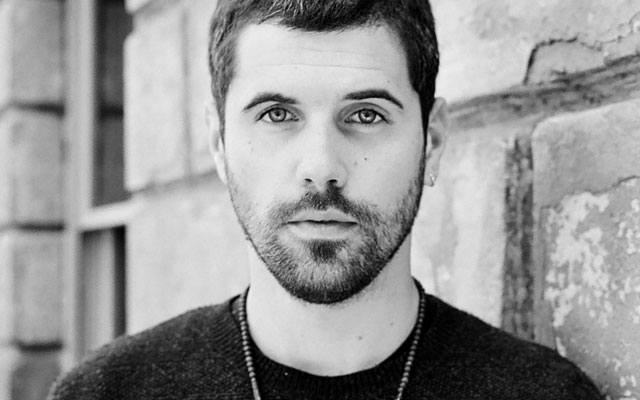 Yes, “Myela” particularly came from a need to express my sorrow. I saw Nigel Farage in front of this poster of these exhausted people. These are like my relatives and I cracked open, and with anger too. Where do I put that? Parallel to that I had this set of quite flamenco Spanish chords. Initially I was quite dismissive. I thought it just sounded like a Gypsy Kings song. I don’t want to do that. Then it grew over many weeks and wouldn’t go away, but every time I tried to add my own words about my own little life, the melodies were making a mockery of my stories so I couldn’t write this song, nothing would fit. I played the chords to Frederico and he said the melody reminded him of something southern Italian and then also one of the guitar elements at the end reminded him of something North African. Then we were, like, that’s really Mediterranean and [Mulvey clicks his fingers] we realised this was the site where we could discuss refugees on this album. We decided that we wanted to be as journalistic as we could so we put two days aside in November last year and really went into the online families archives about the refugees’ journeys in their own words. Almost the entire song is drawn from those words and phrases – “I’d rather die once in the sea than dying every day this day” – and that became “Myela”.
Yes, “Myela” particularly came from a need to express my sorrow. I saw Nigel Farage in front of this poster of these exhausted people. These are like my relatives and I cracked open, and with anger too. Where do I put that? Parallel to that I had this set of quite flamenco Spanish chords. Initially I was quite dismissive. I thought it just sounded like a Gypsy Kings song. I don’t want to do that. Then it grew over many weeks and wouldn’t go away, but every time I tried to add my own words about my own little life, the melodies were making a mockery of my stories so I couldn’t write this song, nothing would fit. I played the chords to Frederico and he said the melody reminded him of something southern Italian and then also one of the guitar elements at the end reminded him of something North African. Then we were, like, that’s really Mediterranean and [Mulvey clicks his fingers] we realised this was the site where we could discuss refugees on this album. We decided that we wanted to be as journalistic as we could so we put two days aside in November last year and really went into the online families archives about the refugees’ journeys in their own words. Almost the entire song is drawn from those words and phrases – “I’d rather die once in the sea than dying every day this day” – and that became “Myela”.
It’s an interesting word, “Myela”, and also appears in the other song, “We Are Never Apart”…
With “We Are Never Apart” I’d formed these sounds that were like “Myela”. She became this female deity, a goddess figure and I liked her in that song so she came back again in the chorus of “Myela”. She’s the maiden in “Myela” and she’s the mother you turn to in desperation on “We Are Never Apart”. I was astounded, staggered, devastated and dismayed watching the story unfold at Standing Rock [the Dakota anti-oil pipeline protests], knowing there are equivalent stories in Morocco, West Papua, the Congo, all over the world. But something about this story really caught me. I’ve always adored indigenous American culture, from the Eskimos through to Central America to the Plains Americas, covering a huge amount of culture. I’ve had this love since I was a young kid at six years old, poring over books, then that grew with my love of shamanism and plant medicines as an adult. I was gripped by this story, amazed at the impudence, arrogance and visibility of a state-deployed militarised police force in service of a fossil fuel corporation in this age of climate crisis. Such a blatant abuse of power. It’s the age old story of desecrating the environment for quick profits.
Listen to "We Are Never Apart"
“We Are Never Apart” is quiet but it’s also one of the album’s most intense and moving songs. Were you really swept up by the protests that sparked it?
It is an amazing story, the way they held fast, the way the protestors became the protectors. Ram Dass talks about that in Be Here Now, how you’ll never successfully protest unless you love who you’re protesting against. If you protest and make violence, you perpetuate the violence. I heard Naomi Klein talking about Standing Rock and how different it was in loads of ways. All the [army] vets came down, the ones who’ve seen the frontline of militarised madness. Their oath to protect their nation was honoured here. There was this moment in this casino when they were sheltering from the rain when this group of vets got down on one knee to these Sioux elders and made this healing act of apology for this and for all of it. I wept at the laptop looking at this thing happening.
Sounds like it was a key moment in the making of the album?
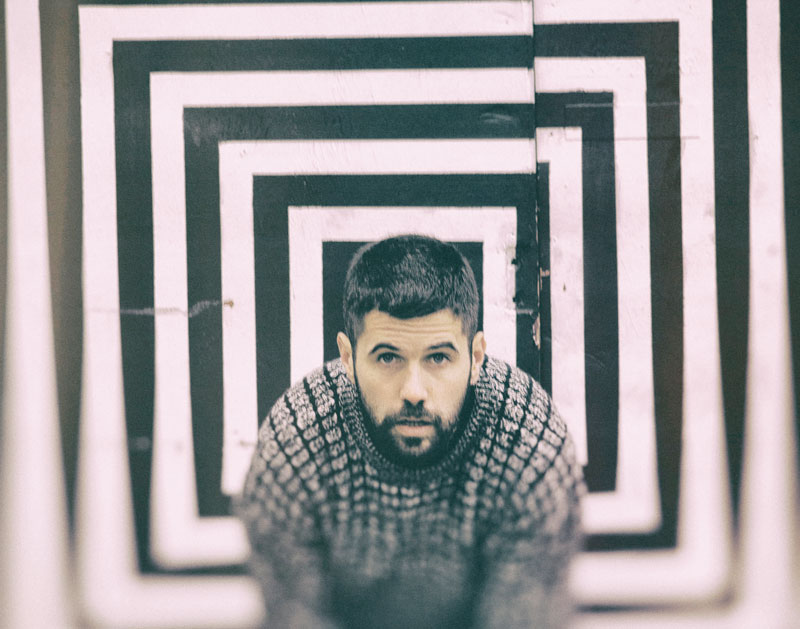 I made this record throughout 2016, parallel to my wife’s pregnancy. There was a fair amount of frustration and some amazing peaks. Working with Brian Eno at the beginning, he gave me some ideas and lot of confidence by being willing to work with me. Then, with the baby arriving, I put the album to one side, but when I went back to it things really started to accelerate, I was locked in. Two days before I went back to the studio I was absolutely in that mode. Being completely candid with you, I had a half glass of ayahuasca by myself and it wasn’t a super-strong experience but it was really peaceful. Before I knew it I put my hands down on the guitar in the position of what was to become “We Are Never Apart” and I’ve done enough songwriting to know my main duty is to get out of the way and let it happen, just observe and let it go. It was a strange out-of-body experience where I was watching my body, going “That’s what I’d do, I love that!”. Then I did some moves I didn’t even know I could do. There’s elements of chord structure that go further and are more elegant than anything I’ve ever written before, directly because of that window I was able to maintain, not falling into it with my decision-making, analytical mind but allowing something else to come through with the aid of the ayahuasca. “They said a pipeline is coming/Black bears at the summit/Gonna have to move on/With the white geese at dawn.” By the end of the day I’d finished the lyrics and it went from Standing Rock through to the commencement of fracking here in the UK. The same situation. There was a referendum in Lancashire that was utterly disregarded and I’m frightened by what they’re doing and where everything’s going, real sadness that comes through in that song.
I made this record throughout 2016, parallel to my wife’s pregnancy. There was a fair amount of frustration and some amazing peaks. Working with Brian Eno at the beginning, he gave me some ideas and lot of confidence by being willing to work with me. Then, with the baby arriving, I put the album to one side, but when I went back to it things really started to accelerate, I was locked in. Two days before I went back to the studio I was absolutely in that mode. Being completely candid with you, I had a half glass of ayahuasca by myself and it wasn’t a super-strong experience but it was really peaceful. Before I knew it I put my hands down on the guitar in the position of what was to become “We Are Never Apart” and I’ve done enough songwriting to know my main duty is to get out of the way and let it happen, just observe and let it go. It was a strange out-of-body experience where I was watching my body, going “That’s what I’d do, I love that!”. Then I did some moves I didn’t even know I could do. There’s elements of chord structure that go further and are more elegant than anything I’ve ever written before, directly because of that window I was able to maintain, not falling into it with my decision-making, analytical mind but allowing something else to come through with the aid of the ayahuasca. “They said a pipeline is coming/Black bears at the summit/Gonna have to move on/With the white geese at dawn.” By the end of the day I’d finished the lyrics and it went from Standing Rock through to the commencement of fracking here in the UK. The same situation. There was a referendum in Lancashire that was utterly disregarded and I’m frightened by what they’re doing and where everything’s going, real sadness that comes through in that song.
Your first album was more about personal emotions. I saw you play “I Don’t Want to Go Home” once at Glastonbury and it really struck a chord, it seemed to be about being at a festival and never wanting it to end. I think you said at the time that you’d split with a girl at a festival…
I met this girl at Glastonbury. I was having a drink in the bar on Thursday night. I’d literally been at the festival for two hours, put up my tent, got this drink, first drink of the festival, and then in quite a small space this gymnast misjudged something and, out of the corner of my eye, I saw this figure in a leotard flying towards me doing backflips. She hit me full on, her feet into my chest; “She back-flipped the breath out of me” is the lyric. We ended up having this little romance at Glastonbury. I didn’t really see her after that.
Watch the video for "I Don't Want to Go Home"
You studied ethnomusicology at university. I don’t generally like 21st century singer-songwriters - too much whining, falsetto voice-breaking, nebulous lyrics and endless vulnerability - but something about your music sets it apart, makes it different. I wonder if, musically at least, that derives from your interest in ethnomusicology?
Definitely, it plays an important part but it goes back deeper. Way before I really got into African music I was doing derivative African things when I picked up the guitar. I do specifically mean a finger-picking, interweaving, groove-based way of playing. I don’t put a chord, sing some words, another chord. That might annoy you! Sometimes I try not to groove but I’m just built this way. I was definitely getting switched on in my mid-teens by people like Steve Reich, when I was learning to play guitar. Minimalism and electronic music and techno, then African music. I was on a mainline diet of African music for three years, got really into African guitar, used to go to London with these Congolese guys and learn stuff, and in the background even stuff like Oasis and Blur which I liked when I was young. I’d listen to World Routes on Saturday afternoon on Radio Three then buy the music I liked, throat singing, African choral music, loads of stuff.
I read an amusing interview with you when you recollected bizarre, very English conversations that took place during the end of your time with Portico Quartet. The group was thinking about no longer using the hang, the percussive instrument that was starting to become something of an albatross for the band, but which you played…
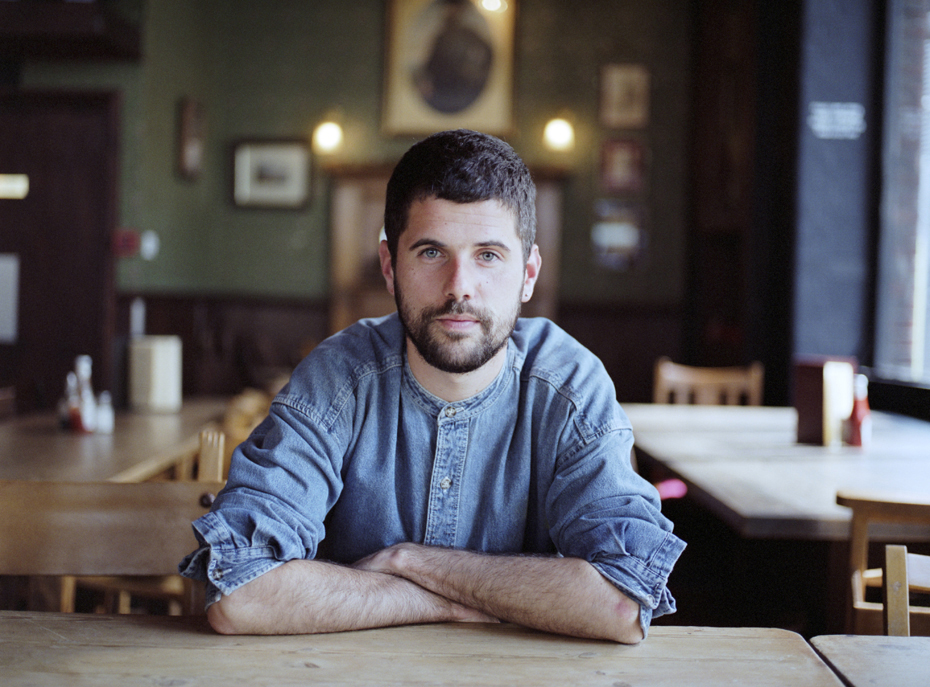 I remember there being an element of uncertainty around those conversations and they were a bit disjointed. We’d have these conversations about moving beyond the hang and not say what felt obvious in the room, “But then what would I play?” At the same time, people were liking the solo thing and I was getting small gigs, interest from labels. I didn’t see a way in which I could evolve to a new level with that band. Lots of people said, “Well, why didn’t you bring the guitar thing into the band?” but it didn’t feel right. I don’t see them as much as I’d like but I love them.
I remember there being an element of uncertainty around those conversations and they were a bit disjointed. We’d have these conversations about moving beyond the hang and not say what felt obvious in the room, “But then what would I play?” At the same time, people were liking the solo thing and I was getting small gigs, interest from labels. I didn’t see a way in which I could evolve to a new level with that band. Lots of people said, “Well, why didn’t you bring the guitar thing into the band?” but it didn’t feel right. I don’t see them as much as I’d like but I love them.
You’re clearly a very conscious individual, but is there a hedonistic aspect to you? You’re on the sage tea tonight, but are you sometimes a wine and whisky man?
This sage tea is a direct result of playing the London show the other night and staying up. I think the more you get into things like yoga and meditation... I like to let loose but I don’t like to abuse myself. I’m not trying to escape something. In truth, to be hardline about it, I think there’s always a reaching for something when you’re imbibing like that but I don’t do it in any major way.
What’s your earliest memory?
A very early memory is of being so hit by the beginning of Dire Straits’ “Money for Nothing”, that crescendo which my dad used to play really loud in the car. I had mixed it up in my mind between fantasy and reality. I kind of knew that if a certain set of conditions happened – the break of the crescendo just as we turned a corner with the entire family holding onto the bars at the top of the windows – then the car would take off. Unfortunately all the conditions never quite aligned. I was striving for it. I should bloody try it again.

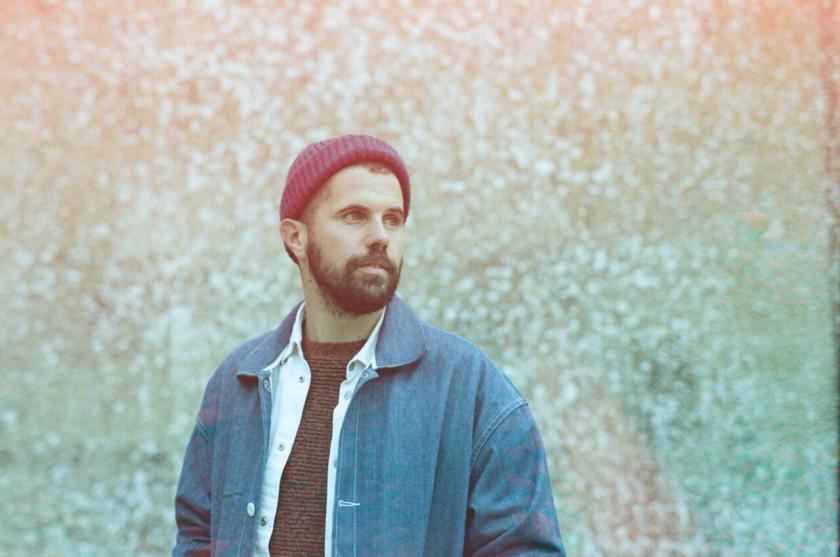













Add comment